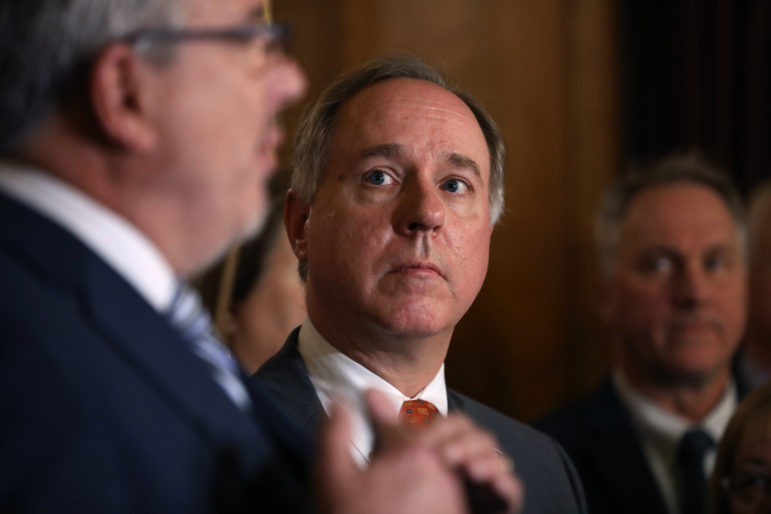Vos Penalized in Open Records Case
Assembly Speaker 'did not respond to four records requests for six months,' circuit court judge states.

Assembly Speaker Robin Vos. File photo by Coburn Dukehart / Wisconsin Center for Investigative Journalism.
Assembly Speaker Robin Vos has been ordered to search for and turn over records relating to the partisan investigation of the 2020 presidential election in Wisconsin. Vos must also pay statutory fees and attorneys’ costs associated with the case, according to an order issued Friday by Dane County Circuit Court Judge Valerie Bailey-Rihn.
“In this public records case, Wisconsin State Assembly Speaker Robin Vos… did not respond to four records requests for six months,” the judge states in her decision. “After the Court ordered Vos to respond, he finally did so. It took him one day.”
The court found that Vos had violated Wisconsin’s public records statutes by not producing records “as soon as practicable,” and by failing to respond to a request for a specific time period and instead producing records from a different, unasked-for time period. Furthermore, “based on the undisputed evidence of Vos’ ineffectual records practices, I can draw no reasonable inference except that Vos did not search for records in the first instance,” the judge wrote.
American Oversight, the government watchdog group that requested the records, won its motion for summary judgment against Vos, who must now search for and produce the records within 20 days as well as paying American Oversight’s costs.
Among the records American Oversight is seeking are copies of contracts or other written agreements between the Wisconsin State Assembly and the parties investigating the 2020 election, copies of guidance or policy procedures given to those parties and copies of resumes, bids, proposals, cost estimates and invoices related to the investigation.
Vos delayed passing on some of those requests to his staff, the court found. “As a result, Vos admits that responsive records could have been deleted after his office received a request, but before Vos told his employees about that request,” the order states. (Thanks to a loophole in Wisconsin’s records retention law, legislators, unlike other public employees, are permitted to routinely delete records that have not been specifically requested by the public.)
The Court did not agree with American Oversight that Vos’ conduct was “arbitrary and capricious” and therefore deserving of punitive damages, and ruled against that portion of the group’s motion for summary judgment. Instead, the decision scolds Vos for delegating responsibility for fulfilling open records requests to “untrained and unsupervised individuals” in his office, noting that Wisconsin Department of Justice guidance on the state’s open record’s law is very clear that “[r]equests for public records should be given high priority,” and that “10 working days generally is a reasonable time for responding to a simple request for a limited number of easily identifiable records.”
Vos’ office did not respond to a request for comment on the court’s decision.
“Vos wears his contempt for the idea that he should be accountable to anyone on his sleeve. It is not a good look,” adds Lueders, who wrote a piece for the Examiner in 2019 about Vos’ poor open records compliance. “The penalties that the Speaker incurred should not be passed on to taxpayers. He should pay them with his own money, since he broke the law of his own accord.”
Robin Vos penalized in open records case was originally published by the Wisconsin Examiner.





















